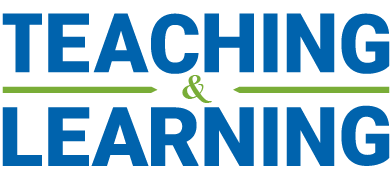The recent shift to online course delivery and cancellation of in-person exams has required many Schulich instructors to rethink their approaches to assessment in their courses. While some assessments can make a natural transition from the in-person to the virtual realm with relatively minor fuss (i.e., in-person presentations can be shifted onto Zoom and run without major changes to the deliverable requirements), quizzes and exams often require more thought in order to preserve their academic integrity in the new environment.
Although remote proctoring technology (e.g., Respondus Lockdown Browser & Monitor) can seem like a great tool that allows instructors to simply shift their in-person closed-book exams online while maintaining their academic integrity, it does have its drawbacks. These can range from student equipment requirements, to unstable internet connections, to privacy concerns. If one student experiences technical issues or has a broken webcam, this can create a complicated situation for the instructor, often involving the need for multiple deferred exams or alternative assessment formats, which then have implications for fairness and academic integrity. Instructors should avoid having some students in the class write an online exam while others are assessed in an alternate format. One recommendation is to turn closed-book exams into an open-book format and avoid the complications altogether.
There are many benefits to the open-book exam approach:
- Rather than requiring the instructor to spend significant time and energy on deterring cheating, open-book testing assumes that students have access to resources. The assessment becomes less about memorizing and reciting information, and more about application of knowledge content and skills.
- Question types can be more challenging than in a closed-book exam and instructors can expect students to make use of higher order thinking skills. Students must spend time in advance to prepare for these higher-order questions, rather than memorizing formulas or other information that can be more easily looked up. Important skills in today’s age also include the ability to sort through, organize, and evaluate vast quantities of information quickly, and then synthesize and apply what’s relevant.
- Open-book exams can better reflect the kinds of challenges students will encounter in the real world. Very rarely do we find ourselves in a situation where we are not able or allowed to access resources or expertise.
- The less restrictive format can suit a variety of student accommodation needs.
Some tips for designing open-book exams:
- Consider whether you want to design a take-home style exam with a longer time frame or a time-boxed exam in Canvas.
- Take advantage of the opportunity to design more challenging questions. Forget questions that require little more than a quick flip to a certain lecture slide or textbook page to identify the correct response. Create questions that require application, analysis, synthesis, evaluation or creation.
- Instructors can and should still use techniques associated with closed-book exams, such as random question assignment. When these techniques are built into an open-book assessment, they can challenge students further and reduce the likelihood of academic integrity infractions. Also consider building in distracting answer choices that might lead students who are not familiar with the content and have not prepared ahead of time down the wrong path.
- Make use of case-based exam questions that require students to apply critical reasoning skills in response to a given scenario.
- Ask students to submit their work via Turnitin to reduce academic honesty infractions.
- Use your textbook publisher for question generation when possible. They can help create an exam in which students are provided with the same questions but in randomized order.
- Let students know that they won’t be awarded credit for just copying information that was available to them in the course materials.
- Keep the length of the assessment short and sweet. When time is limited students won’t be able to randomly search for answers. Familiarity with course concepts ahead of time will be necessary for success. Students should be encouraged to study their course materials thoroughly but also spend time on organizing and being able to access their resources quickly and efficiently.
- Let students know whether they are allowed to collaborate. Consider allowing them to work together but requiring they do their own write-up. Collaboration can require negotiation and allow students to learn from each other.
Open-book exams can be a challenging and pedagogically effective form of assessment. Consider adapting your closed-book final exam to this format and you might find that the process is just as effective and a lot less complicated to administer than a remote proctored closed-book final.
| “I just wanted to share my excellent experience with administering my midterm on Wed through the assignment function on Canvas. The students all signed an academic honesty form prior to writing the midterm. The students downloaded the midterm from the announcement function then they had 90 mins to write their exam at home. You can also change the time frame for students that have accommodations. I told them they could use any hard copy resources that they wanted but no on-line resources or their classmates. They uploaded their answer through the assignment function on Canvas which also put it through TurnItIn and I knew immediately that they were all submitted. As a back up I had them e-mail me their response as well. This reduced my stress and I hope the stress of my students as well. Overall a very positive experience that I would recommend to others to consider.” – Elizabeth Farrell – Adjunct Professor of Accounting |  |



